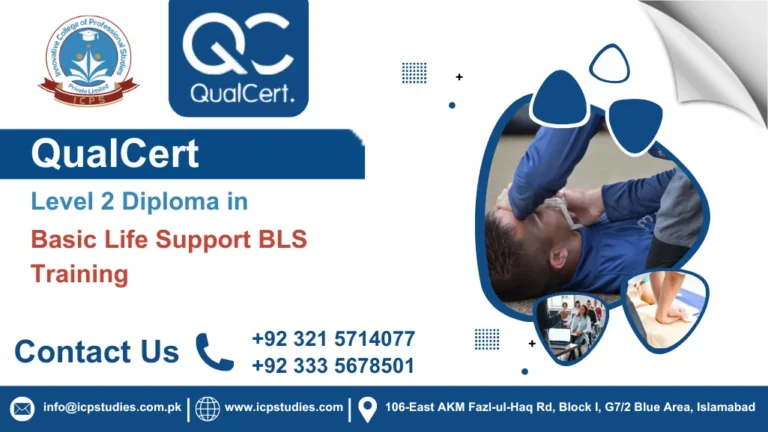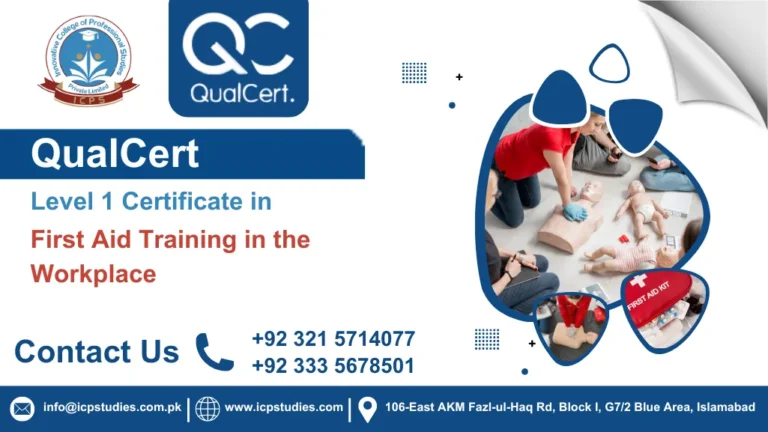Quality control (QC) plays a pivotal role in the mechanical engineering and manufacturing industries, ensuring that products meet industry standards, customer requirements, and regulatory guidelines. If you’re looking to build a solid foundation in this critical field, the Level 3 Diploma in Quality Control (QC) Mechanical is an excellent choice. This qualification is ideal for those seeking to develop the skills and knowledge needed to thrive in quality control roles within mechanical engineering.
The Level 3 Diploma in Quality Control (QC) Mechanical is designed to equip learners with the practical skills, technical expertise, and theoretical understanding required to work effectively in quality control within the mechanical engineering sector. Whether you are looking to start a career in quality control or enhance your existing skills, this course offers a comprehensive curriculum that prepares you for a variety of roles in the industry.
The diploma is a specialized program that focuses on the principles, techniques, and tools used in quality control for mechanical systems and components. It covers a broad range of subjects, from inspection and testing methods to understanding material properties, process control, and the application of industry standards. The course also introduces learners to statistical process control (SPC), root cause analysis, and quality management systems (QMS).
The Level 3 Diploma in Quality Control (QC) Mechanical is an essential qualification for those who want to pursue a career in quality control within the mechanical engineering field. With a combination of theoretical knowledge and practical skills, this diploma prepares you for a variety of roles in the industry, offering exciting career opportunities and the potential for career advancement.
Whether you are just starting your career or looking to upgrade your skills, the Level 3 Diploma in Quality Control (QC) Mechanical will help you stand out in a competitive job market. So, if you’re ready to build a career that ensures the quality and safety of mechanical products, this course is your first step toward success!
All About Level 3 Diploma in Quality Control ( QC ) Mechanical
Course Overview
The Level 3 Diploma in Quality Control (QC) Mechanical is a comprehensive qualification designed to provide you with the essential skills and knowledge required for a successful career in quality control within the mechanical engineering sector. This course is ideal for individuals looking to specialize in ensuring that mechanical products and systems meet industry standards and specifications.
Throughout the course, you will gain a deep understanding of quality control processes, inspection techniques, measurement tools, and industry-standard practices. You will learn how to assess mechanical components, identify defects, and implement corrective actions to maintain high-quality standards. This qualification is perfect for those seeking to enhance their technical abilities, advance in their current roles, or start a new career in quality control.
By the end of the course, you will be equipped with practical skills in the application of quality management systems, statistical process control (SPC), and problem-solving techniques—all of which are crucial for maintaining efficiency, reducing waste, and ensuring the safety and reliability of mechanical systems and products.
The Level 3 Diploma in QC Mechanical is a valuable stepping stone for anyone looking to make a significant impact in the mechanical engineering or manufacturing industries, offering career progression opportunities in quality assurance, inspection, and more.
Study Units
- Concrete and Steel Testing Methods
- Environmental Impact of Construction
- Statistical Methods in Quality Control
- Risk Management in Construction Projects
- Continuous Improvement in QC Practices
To enroll in the Level 3 Diploma in Quality Control (QC) Mechanical, candidates typically need to meet the following entry requirements:
- Educational Background:
- A minimum of a Level 2 qualification (such as GCSEs or equivalent) in a relevant subject, such as mathematics, engineering, or science, is generally required.
- Some institutions may accept candidates with other relevant qualifications or experience in the mechanical or manufacturing industries.
- Work Experience (Preferred but Not Required):
- While prior experience in mechanical engineering, manufacturing, or quality control can be advantageous, it is not a mandatory requirement. However, candidates with practical experience in these areas may find it easier to relate to course content.
- Basic Mathematical and Analytical Skills:
- A solid understanding of basic mathematics, including measurements, calculations, and data analysis, is important, as these skills are essential for tasks such as statistical process control (SPC) and quality analysis.
- Interest in Quality Control:
- A genuine interest in quality control, mechanical engineering, and the processes that ensure product safety and reliability will help you succeed in the course.
- English Language Proficiency:
- You should be able to understand, read, and write in English at a level suitable for studying technical and academic material. Institutions may require proof of English proficiency, particularly if English is not your first language.
If you are unsure whether you meet the entry requirements, it’s best to check with the specific training provider or institution for detailed eligibility criteria, as they may offer tailored support or alternative routes for entry based on individual circumstances.
The Level 3 Diploma in Quality Control (QC) Mechanical is designed for a wide range of individuals who are interested in building or enhancing their career in the mechanical engineering and manufacturing sectors. Specifically, this course is ideal for:
- Aspiring Quality Control Technicians:
- Individuals looking to start a career in quality control and ensure that mechanical products and systems meet the required standards.
- Mechanical Engineering Technicians:
- Professionals already working in mechanical engineering who want to specialize in quality control processes, improve their skills, and take on more responsibility in ensuring product quality.
- Manufacturing Engineers:
- Engineers working in manufacturing or production environments who wish to expand their knowledge in quality management systems, inspection techniques, and process improvement.
- Current Quality Control Professionals:
- Those already working in quality control roles within manufacturing or engineering who seek formal qualifications to advance their careers and improve their proficiency in quality management and problem-solving.
- Individuals Seeking Career Change:
- If you’re looking to transition into the mechanical engineering or manufacturing industry, this course provides the foundational knowledge and skills needed to break into the field of quality control.
- Managers and Supervisors in Engineering or Manufacturing:
- Those who are in leadership roles and wish to deepen their understanding of quality control processes and how they contribute to overall operational efficiency, compliance, and product reliability.
- Anyone Interested in Quality Assurance:
- If you have an interest in ensuring products meet industry standards, maintaining safety, and implementing continuous improvement practices, this course provides a great foundation for your career in quality assurance.
Why Choose This Course?
Whether you are just starting out, looking to enhance your skills, or transition into the field, this diploma gives you the practical expertise needed to succeed in quality control roles across the mechanical and manufacturing industries. By the end of the course, you’ll have the technical know-how and problem-solving capabilities to take on various quality-related challenges, ensuring you’re equipped for career growth and advancement.
Learning Outcomes
Upon successful completion of the Level 3 Diploma in Quality Control (QC), participants will achieve the following learning outcomes:
Quality Control in Structural Engineering
- Understand the core principles and best practices of quality control within structural engineering projects.
- Develop the skills to assess and monitor the quality of materials, components, and structural designs.
- Identify common quality issues in structural engineering processes and implement solutions to mitigate them.
- Apply effective quality control measures to ensure compliance with industry standards, safety regulations, and project specifications.
Concrete and Steel Testing Methods
- Gain a solid understanding of testing methods for concrete and steel materials used in construction.
- Learn to perform tests to evaluate material strength, durability, and overall quality of concrete and steel.
- Interpret test results to assess the performance and suitability of materials for construction projects.
- Apply testing results to improve the overall quality and integrity of construction work.
Environmental Impact of Construction
- Recognize the environmental implications of construction processes and materials used in projects.
- Evaluate the environmental impact of construction activities with a focus on sustainability and eco-friendly practices.
- Develop strategies to reduce the environmental footprint of construction projects.
- Ensure projects meet environmental regulations and industry standards for sustainable construction.
Statistical Methods in Quality Control
- Master statistical tools and techniques used in quality control, such as sampling, process control charts, and hypothesis testing.
- Learn how to analyze and interpret quality data to identify trends, issues, and opportunities for improvement.
- Apply statistical methods to monitor and control processes, ensuring consistent and high-quality outcomes.
- Use data-driven insights to make informed, evidence-based decisions in quality management.
Risk Management in Construction Projects
- Understand the principles of risk management and its critical role in construction quality control.
- Identify potential risks in construction projects, including those related to safety, quality, and regulatory compliance.
- Develop and implement risk management plans to mitigate identified risks before they impact the project.
- Learn to take proactive measures to manage risks effectively, ensuring the overall success and quality of construction projects.
Continuous Improvement in QC Practices
- Gain a deep understanding of continuous improvement methodologies like Lean and Six Sigma in quality control.
- Analyze existing quality control practices to identify areas for improvement and efficiency gains.
- Learn how to implement continuous improvement strategies to reduce defects and enhance overall quality control processes.
- Promote a culture of continuous learning and improvement within quality control teams and across organizations, fostering long-term success.
By completing this diploma, participants will be well-equipped with the skills, knowledge, and practical experience needed to excel in quality control within structural engineering and construction.
FAQs Level 3 Diploma in Quality Control ( QC ) Mechanical







